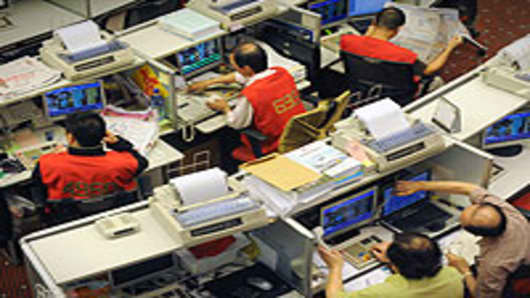Chinese stocks have seen quite a correction off late, with the Shanghai Composite falling below 2,700 to a new low for the year on Friday. The Hang Seng index, which has dropped below the psychological 22,000 level, is now at the lowest since October 2010.
But one fund manager, who's been shorting Hong Kong stocks since November, believes the market has hit bottom and that continued money printing by the Federal Reserve will boost Chinese equities.
"I believe all the bad news is in place; the U.S. is too big to fail, and the U.S. must continue to borrow either from Chinese, or borrow from themselves, so the money printing process will continue," said Yang Liu, chairman and chief investment officer at Atlantis Investment Management, which manages $4 billion for global institutional clients.
"We must follow the politics, we must follow the money flows, and that's why I believe Greater China is looking extremely attractive judging by historical valuations."
Liu told CNBC the firm had made 3,000 points on the Hang Seng by going short, but she now believes the index will rebound and hit 25,000 by year-end, or a 14 percent gain from its current level.
Her conviction is based on two factors: one, she believes China's government is close to the end of its tightening cycle, and two, she says the Fed is bound to announce another round of money printing by August, which will boost flows into risk-on trades such as Chinese equities.
Atlantis describes its investment style as undervalued growth, and Liu told CNBC she was bullish on stocks related to China's urbanization, which include infrastructure and high-end consumption. She also said the selloff in small cap Chinese stocks was overdone.



